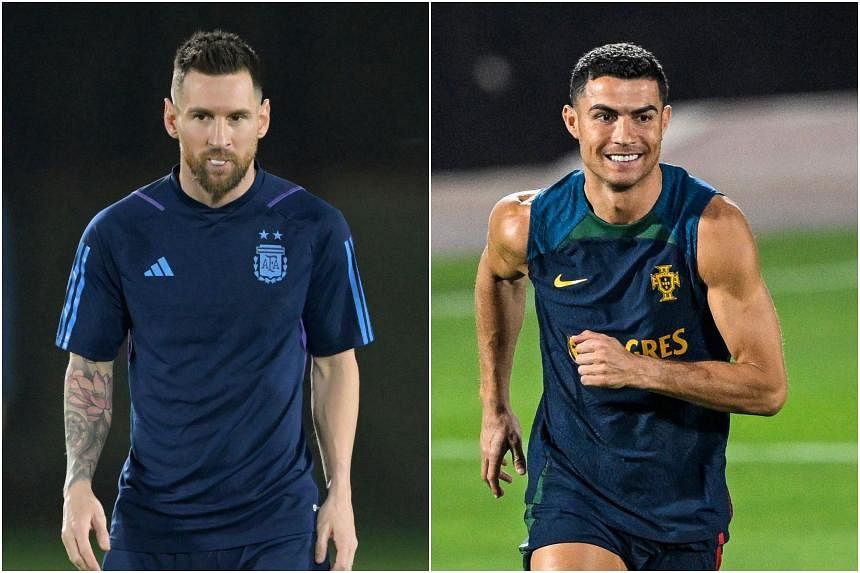DOHA, Qatar – One by one, they have exited the World Cup stage that has been theirs for so long. Some, like Luis Suarez, restless and helpless, on the substitutes’ bench, could not hold back their tears. Others, like Romelu Lukaku and Edinson Cavani, lashed out at whatever inanimate object crossed their path, unable to contain their rage.
One or two have managed to greet the end with grace: a smile on the lips of Robert Lewandowski, satisfied that he had, at least, signed off with a goal; a subtle, sorrowful shake of the head from Sergio Busquets as he turned his back on the missed penalty that had all but drawn the curtain on Spain’s campaign.
There are some who remain, of course, for now at least. Some will depart over the weekend. Some will have a stay of execution for another week or so. One or two will have the ending they crave, inside the gleaming, golden bowl of Lusail Stadium, a trophy in their hands and ticker-tape at their backs.
But whenever it ends, however they react, for all of them, this will be goodbye. It has felt, at times over the last two weeks, as if this World Cup is essentially a valedictory tour for Lionel Messi and Cristiano Ronaldo, certainly the two standout players of their era and quite possibly any.
For the better part of two decades, they have been the central characters in both the sport’s overarching narrative and its daily life.
The duo are also torchbearers for a generation of players that has dominated football for more than a decade, the starriest cast that the sport has ever assembled.
Below Messi and Ronaldo, after all, stretches a group that includes not only Lewandowski, Suarez, Luka Modric, Lukaku and Busquets, but also Thomas Muller and Manuel Neuer, Jordi Alba and Sergio Ramos, Karim Benzema and Paul Pogba, Eden Hazard, Kevin de Bruyne and Dani Alves and others, too.
These are the names that have been woven deep into the fabric of elite football for what seems like a lifetime. It is 10 years since Hazard signed for Chelsea. It is 12 since Busquets and Alba won the World Cup with Spain, 13 since Benzema moved to Real Madrid.
And yet they are still here.
This is the first generation of players to have spent their entire careers in football’s most gilded age, the period – driven by the popularity of the Premier League and the Champions League, by the spiralling demand for television rights – in which the game was transformed from the world’s most popular sport into what the historian David Goldblatt has called the “biggest cultural phenomenon the world has ever known”.
Its clubs have been turned into the ultimate status symbols, squabbled over by oligarchs and sheikhs and nation states.
Ronaldo has more followers on Instagram than anyone else on the planet: almost twice as many as Justin Bieber. Lionel Messi is second. He has as many followers as Katy Perry and Kourtney Kardashian combined.
That has come at a cost. Perhaps the best measure of the significance of this generation, its pervasiveness and its pull, is in what comes next. This World Cup, like every World Cup, has served as a midwife to football’s future: Jude Bellingham of England, Gavi and Pedri of Spain, and Argentina’s Enzo Fernandez did not arrive in Qatar as unknowns, but they will certainly leave as stars. That is the enduring power of the tournament.
Their ages, though, are the giveaway. Football has, in effect, skipped a generation. There is no clutch of ready-made heirs to Messi, Ronaldo, Lewandowski and the rest waiting in the wings. This generation shone too brightly for anything to grow.
But by the time the next World Cup comes around in 2026, few – if any – of them will be present.
For all of them, whenever it comes, Qatar is goodbye, the last hurrah of the standard-bearers for football’s age of excess. NYTIMES

